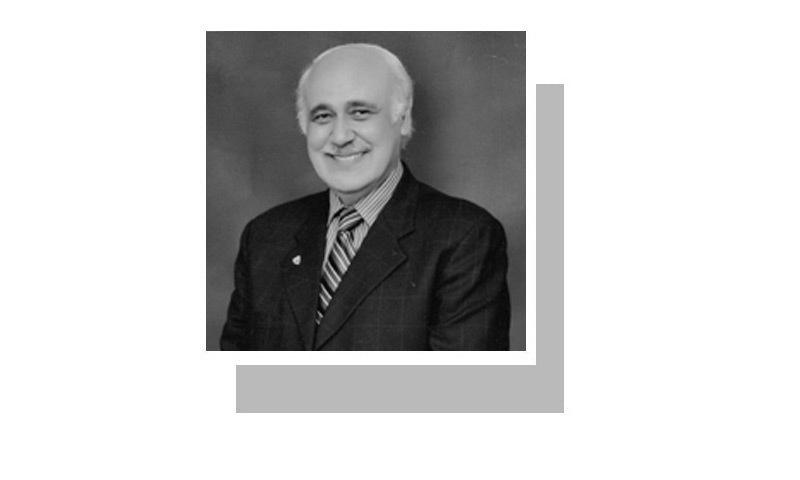THE Book of Joshua is to blame. Its account of the fall of Jericho has given our politicians the notion that if they too “shall shout with a great shout; …the wall of the city shall fall down flat”. These politicians — some now in high office, others languishing in jail, and those who never contested elections — have resorted to this biblical ruse to dislodge incumbent governments.
Once, agitation tended to be local — confined to city squares or main thoroughfares. Disruption was contained, damage confined. Now, dharnas have become the preferred course of registering unhappiness with whoever is in government in Islamabad, and of course these dharnas must take place in the capital city itself.
Negotiations that should lead to a mature consensus within parliament have been replaced by numerous monologues outside it, directed not at opponents but towards the voracious media.
Japan is too refined and sophisticated for immature nations like us to follow but one of its practices merits emulation. When aggrieved Japanese wish to ventilate their resentment, demonstrators do not block traffic, or destroy parked vehicles, or throw stones through shop windows. A few representing the many stand in silent protest. There is no point, the Japanese believe, in wasting everyone’s time and money when less can yield as much.
We believe raucous confrontation can outshout rational discourse.
For us, the concept of satyagraha or passive resistance is too tightly wound with Gandhian connotations. We prefer a more muscular approach. We believe raucous confrontation can outshout rational discourse.
It was not so long ago that the disruptive dharna was used as a lever to prise Nawaz Sharif out of the prime ministership. Time has not forgotten the self-appointed role played by Maulana Tahirul Qadri when he incited the long march of 2012 and again (with Imran Khan’s half-hearted support) the one of 2014. Then, he came to Pakistan fresh from a seven-year exile in Canada. He brought with him Canadian nationality, loyalty to the Queen, and funding that flew beneath the radar of legal disclosure.
The maulana became a modern Joshua, bent upon destroying with the power of his rhetoric an Islamabad as corrupt as Jericho once was. “There is no parliament,” he fulminated in front of Parliament House, “there is a group of looters, thieves and dacoits [bandits] ... Our lawmakers are the lawbreakers.”
Today, his once comrade-in-arms Imran Khan is prime minister. Imran has not forgotten the catechism taught to him by Tahirul Qadri. He continues to fume against the corruption by Nawaz Sharif and his PML-N accomplices, and against Asif Ali Zardari and his sticky-fingered PPP acolytes. His determination to extract ill-gotten money accumulated by them is matched only by their obstinacy in refusing to surrender it. “Corruption wins not more than honesty,” Shakespeare wrote in his play Henry VIII. He should have added that corruption just has more stamina.
There is no one in Pakistan who does not empathise with the prime minister in his efforts to give Pakistan’s economy a transfusion from blood drained by his predecessors. Six years ago, one had written of Imran Khan that he “is trapped between the devil of his ambitions and the deep blue sea of political reality”. A year into his prime ministry, he still is.
In one sense, Imran Khan shares the predicament of the British Prime Minister Boris Johnson. Never in the history of human politics have two leaders taken so many U-turns in such a short time. Both of them have had to include the detritus of unwanted cabinet ministers left by their predecessors. Both have had to swallow their own words — Imran Khan on showing leniency to Nawaz Sharif and Asif Zardari, and Boris Johnson on preferring to die in a ditch rather than ask the EU for an extension to Brexit. Both manoeuvred to get into power and once in the driving seat of the vehicle of state, each is determined to grip the steering wheel even though their vehicles have lost traction.
Both treat public demonstrations whether in Whitehall or in Constitution Avenue with an almost imperial condescension. Had they been autocrats, their hauteur would have been understandable. Both, however, are dependent on others for their position. Boris Johnson needs a working majority in parliament which he hopes will be given to him in the next general election scheduled for Dec 12. Imran Khan is still beholden to those who propelled him into power and now nudge him towards showing leniency to those inimical to him.
Will the latest long march cobbled together by Maulana Fazlur Rehman succeed? The same maulana lost his seat in the last general election and then failed in his bid to be elected president of the country. It will take more than his wind power and trumpeting to bring down our modern Jericho.
The writer is an author and historian.
Published in Dawn, October 31st, 2019














































